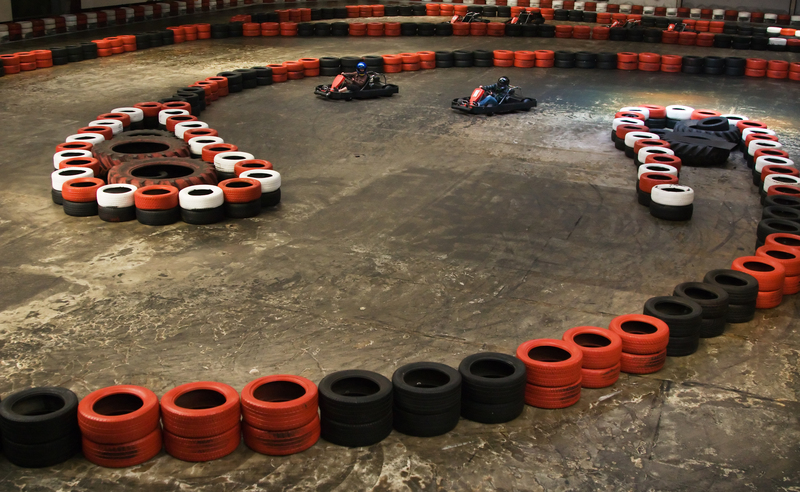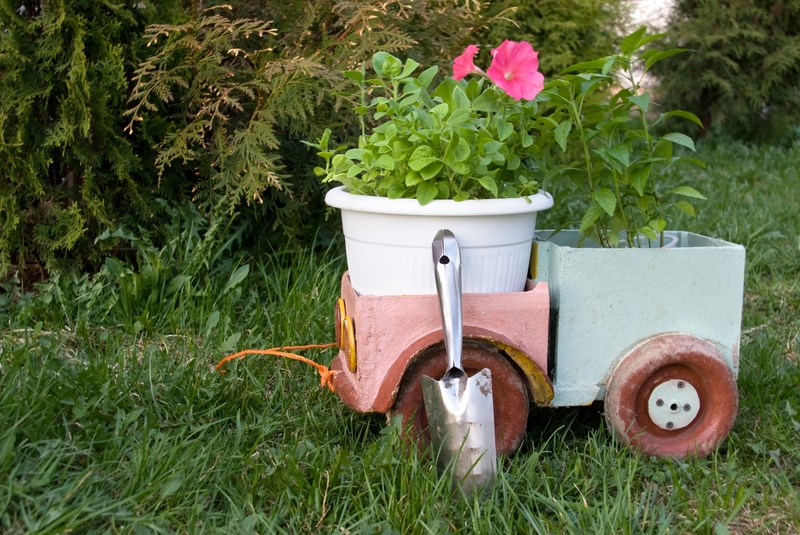 Effective Office Waste Reduction
Effective Office Waste Reduction Reducing waste in the workplace is not just an environmental concern; it's also a savvy business strategy. Offices generate a significant amount of waste, from paper to electronic waste.
 Effective Office Waste Reduction
Effective Office Waste Reduction Reducing waste in the workplace is not just an environmental concern; it's also a savvy business strategy. Offices generate a significant amount of waste, from paper to electronic waste.
 5 Compelling Reasons for Waste Care
5 Compelling Reasons for Waste Care Waste management is a crucial aspect of maintaining a sustainable environment. Not only does proper waste care improve the quality of life, but it also has significant environmental, economic, and social implications.
 Waste Composting 101
Waste Composting 101 Waste composting is an environmentally friendly method used to recycle organic waste material into valuable fertilizer.
 Waste Reduction Importance
Waste Reduction Importance Waste reduction is a critical component in the fight against environmental degradation and climate change. As global populations continue to grow and consumer habits evolve, managing waste has become an urgent priority.
 Effective Tips for a Plastic-Free Kitchen
Effective Tips for a Plastic-Free Kitchen In the fight against climate change and pollution, reducing plastic usage in our daily lives has become increasingly vital.
In a bustling city like London, waste management is a major concern. The population of over 8 million people produces a significant amount of waste, and one item that often ends up in landfills is mattresses.
 Correct Methods for Sorting Waste
Correct Methods for Sorting Waste Sorting waste efficiently starts with understanding the different categories.
 Contributors to Waste in Commercial Areas
Contributors to Waste in Commercial Areas Commercial areas are bustling hubs of economic activity, critical to the vitality of modern economies.
 6 Green Waste Facts Beyond the Basics
6 Green Waste Facts Beyond the Basics As environmental consciousness grows, more people are becoming aware of the importance of proper waste management. But even if you are already segregating your recyclables and compostables, there's always more to learn.
 The Benefits of Proper Waste Management
The Benefits of Proper Waste Management Effective waste management is crucial for maintaining the health of our environment and the well-being of the global population.
 Effective Ways to Keep Builder Waste Down
Effective Ways to Keep Builder Waste Down The construction industry is a cornerstone of modern development, but it's also a significant contributor to waste generation. Many materials end up in landfills, taking a toll on the environment.
 The hidden environmental costs of single-use plastics and the need for sustainable alternatives
The hidden environmental costs of single-use plastics and the need for sustainable alternatives Single-use plastics have become a staple in our everyday lives. From grocery bags and water bottles to food packaging and straws, these disposable items are convenient and easily accessible.
 CALL US NOW
CALL US NOWWe remove all kinds of items, from various unwanted household items and furniture to junk and rubbish. We're fully licensed for waste removal except for the most hazardous of materials.
If you have been put off clearing refuse because you don't know where to take it then phone us now. There can be a million and one things you have to take into consideration when you want to clear a house, office, or junk from in or around your property. We make things simple because we take care of all the logistics and legalities. We have been in the rubbish removal business for many years. Our experience and knowhow is just what you want to make your life easier.
The main aim of Waste Removal London is to make all kinds of waste removal easy for you. We take care of everything so all you have to do is make a phone call to 020 3795 6984. It's the convenient, practical rubbish clearance service that's already been used by countless clients across London. Don't even think about hiring a skip because the cost and potential hassle involved just isn't worth it. Our waste collection service means we come and load everything into a truck where it's then disposed of legally and in an environmentally friendly way. There's no better or more helpful service than ours.
No matter what you want cleared in London, our rubbish removal experts can deal with it. It may be one large item in your house such as a bed unit or it may be a pile of rubbish around your business property. We're the one stop shop for every type of problem. Our team or clearance workers are trained to do this waste removal work. It saves you the manual labour and also steers you clear of any potentially hazardous work that needs to be done. There really is no need to do the work yourself when you have our skilled employees waiting to do it for you.
Waste Removal London gives you the very best waste collection service at the very best price. This makes the work carried out by us even more satisfying for you. We have become known across London for offering trustworthy rubbish clearance services that are also amazing value. For us, a great service and a great price always go hand in hand and have done ever since we came into business many years ago. It's why we would love to give you a no obligation quote for the work you would like done. Call us now on 020 3795 6984 and hear for yourself how we can deliver the waste removal solution you want both in terms of price and service.
As a contractor, I find this company to be a fantastic resource--always reliable and practical. Their pricing is fair, so I recommend them to all my clients and colleagues.
2026-02-26Fantastic job! Approachable staff did a brilliant job clearing and disposing of everything, including disassembling my furniture promptly.
2026-02-16Had an excellent experience with this team--they were trustworthy and prompt. My car didn't get filled with rubbish before my event because they handled it all.
2026-02-06We booked this group to help clear the family home for selling. They were brilliant and responded with enthusiasm to all our requests. Left the house in perfect condition, putting smiles on everyone's faces. I'd definitely recommend.
2026-01-27Their timing was perfect--they quickly and safely took care of the waste removal.
2026-01-17The whole process was straightforward. I got my booking confirmation fast, and the collection team was friendly and careful with my old sofa. I would certainly recommend and use them again.
2026-01-07My place was cluttered with project debris and dated furniture. WasteRemovalLondon made the clear-out process smooth and easy.
2025-12-22No hassles at any step. Communication was excellent, no surprises, and they did a splendid job.
2025-12-12Waste Clearance Company has assisted my business for over three years and has never let me down - reliable, always punctual, and goes above and beyond regularly.
2025-12-02The junk behind my house is finally gone thanks to this awesome crew! Fast, professional, affordable--I'll be back for sure.
2025-11-22


Recycling paper at home not only conserves natural resources but also reduces the amount of waste ending up in landfills. By following these easy steps, you can turn old newspapers, magazines, and documents into reusable paper while promoting environmental sustainability.